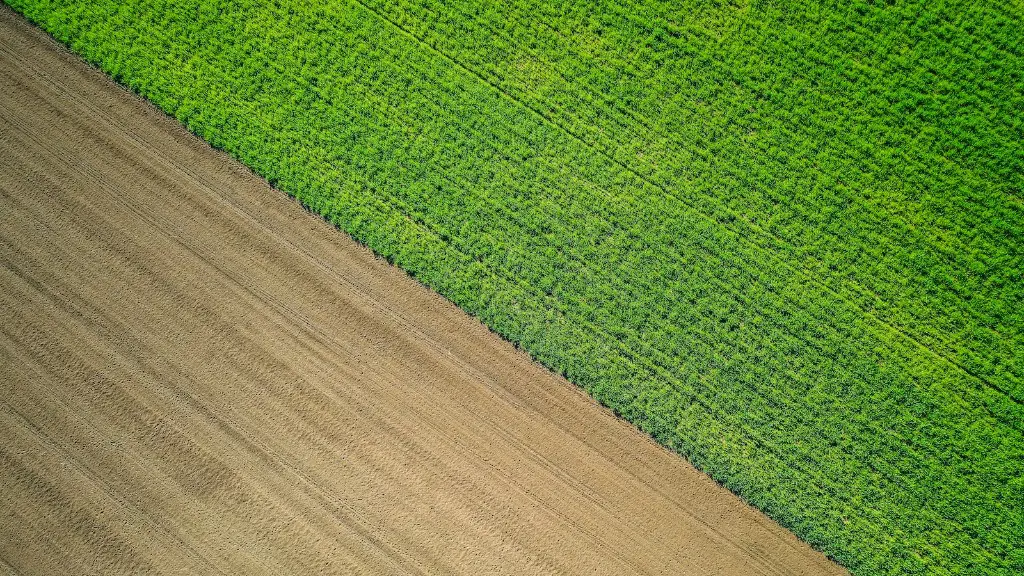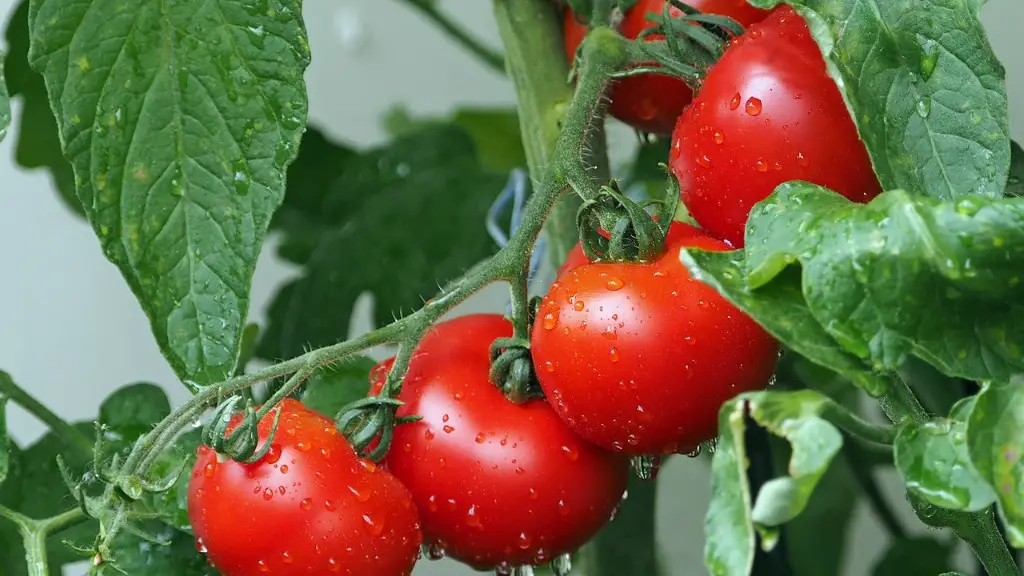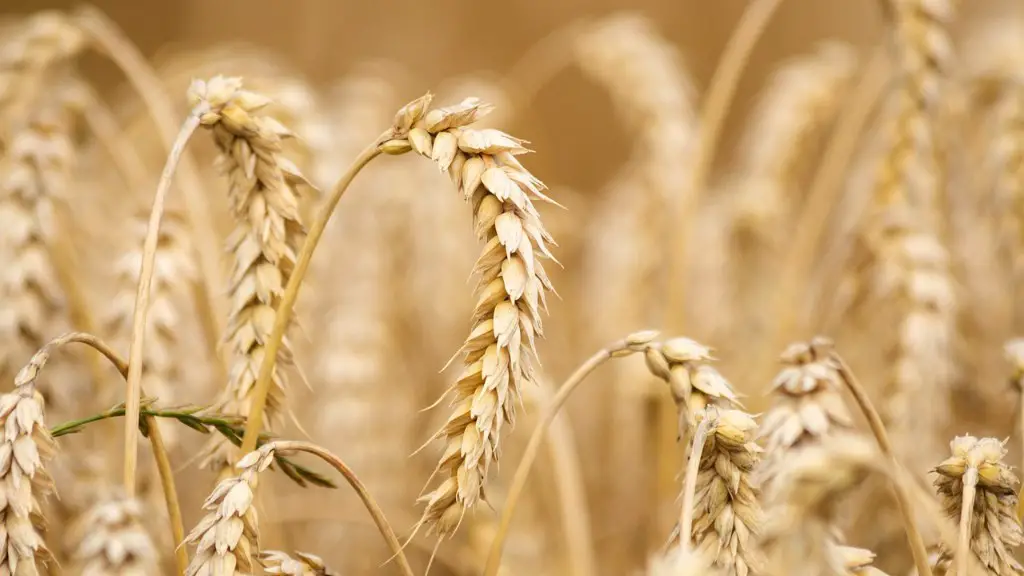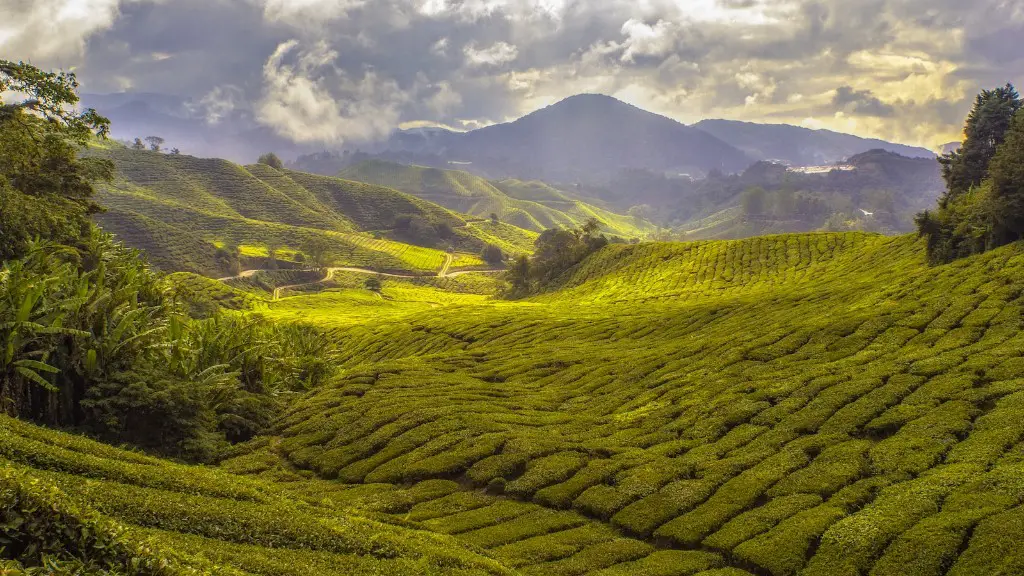Agriculture has been a vital part of Georgia’s economy since the state’s earliest days. Georgia’s climate and soils are well suited for a wide variety of crops, and agriculture remains one of the state’s top industries. In recent years, the state’s agriculture industry has faced challenges from droughts, floods, and shifting markets. However, Georgia’s farmers and ranchers have persevered, and agriculture continues to make a significant contribution to the state’s economy.
agriculture plays a vital role in georgia’s economy. agriculture is the state’s largest industry, generating $74.1 billion in annual economic activity and employing almost 312,000 Georgians. agriculture also has a significant impact on other industries in the state, such as forestry, agri-tourism, and food processing.
What is the economic impact of agriculture in Georgia?
This is a significant contribution to the state’s economy and highlights the importance of the agricultural sector. The sector provides employment for many people and is an important source of income for the state.
Georgia’s agriculture sector is an important part of the economy, contributing 7-8 percent of GDP over the last five years. The sector is also a key source of livelihood for the rural population, which makes up over 40 percent of the total population. Georgia’s agriculture sector faces challenges, such as low productivity and a lack of investment, but the government is taking steps to address these issues.
How does agriculture affect the economy
Agriculture, food, and related industries play a significant role in the US economy, contributing roughly $1264 trillion to GDP in 2021. This sector accounts for 54 percent of the country’s GDP, with the output of America’s farms making up approximately 7 percent of this total. The agriculture industry is vital to the US economy and provides millions of jobs across the country.
The Georgian agriculture sector is one of the most productive and efficient in the region, despite having limited state support and funding. The sector employs a large share of the country’s labor force and contributes a significant amount of the national GDP.
What drives Georgia’s economy?
Georgia’s economy has long been based on agriculture, particularly the cultivation of citrus fruits, tea, and grapes. More recently, however, the economy has diversified to include mining (of manganese and copper) and manufacturing (of wine, metals, machinery, chemicals, and textiles). Tourism is also an important part of the economy, particularly around the Black Sea.
Georgia is a top producer of peanuts, eggs, and broilers in the United States. Many companies source their products directly from Georgia farms, including Pilgrim’s Pride, Chick-fil-A, Coca-Cola, and Tyson. The state’s favorable climate and ample farmland make it an ideal location for agriculture.
What are some facts about agriculture in Georgia?
Georgia agriculture is booming and one out of every seven Georgians now works in agriculture, forestry, or a related sector. The industry contributes more than $67 billion, or about 12%, to Georgia’s $787 billion economic output annually. Thanks to our state’s mild climate and ample rainfall, farmers here are able to grow a wide variety of crops throughout the year. We’re also a top producer of peaches, peanuts, and pecans.
The individual income tax is Georgia’s top revenue source, generating between 40 and 45 percent of the state’s total revenue. The funds collected through this tax are used to finance a wide range of state services, including education, healthcare, and infrastructure. While the individual income tax is generally a progressive tax (with higher rates applying to higher incomes), it is also a significant burden for many Georgia taxpayers.
What are 3 reasons why agriculture is important
Agriculture is critical for the sustainable development of any country. It is the main source of raw materials, food, and animal feed. Moreover, it is a significant contributor to a nation’s GDP and development. Agriculture also plays a key role in international trade and the global economy. Additionally, it provides employment for millions of people around the world. Moreover, agriculture can help heal the environment and is crucial for the food security of any nation.
While the development of agriculture can have a positive impact on the local environment, it can also lead to a number of negative consequences. Inorganic nitrate pollution, pesticide pollution and salinity problems are all potential drawbacks of intensive agriculture. If not managed properly, these problems can seriously damage the local ecosystem.
What is the largest industry in Georgia’s economy?
Georgia’s largest industries by revenue are Drug, Cosmetic & Toiletry Wholesaling, New Car Dealers and Hospitals. These industries generated a combined revenue of $1.169 trillion in 2022.
Georgia is a top producer of a number of crops, including cotton, cucumbers, pullets, and watermelon. The state ranks third in the nation for bell peppers, peaches, and sweet corn production. Georgia’s diverse climate and soil allow for a wide variety of crops to be grown in the state, making it a key player in the agricultural industry.
What state is number 1 in agriculture
California had the highest agricultural receipts in the United States in 2021 followed by Iowa, Nebraska, Texas, and Illinois. This is due to the state’s large agricultural industry, which produces a variety of crops and livestock. California is also the largest producer of wine in the country.
Georgia’s top products in the poultry and egg industry are comprehensive and top-notch. Three out of four counties in Georgia are involved in poultry and egg production, which accounts for a third of the state’s farm commodities. This industry is booming and provides a wide array of employment opportunities for those looking to break into the field.
Does Georgia have a strong economy?
Georgia’s economic freedom score is 718, making its economy the 26th freest in the world in the 2022 Index. Georgia is ranked 18th among 45 countries in the Europe region, and its overall score is above the regional and world averages. The country’s scores for property rights, fiscal health, and government integrity remain at the top of the world rankings, while scores for labor freedom, investment freedom, and financial freedom have declined.
Georgia’s top agricultural export is cotton, which brought in $695 million in 2015. That placed Georgia second among US states in cotton exports, behind only Texas. Other major exports from Georgia include poultry, pecans, and peanuts.
What is the main industry in Georgia
The three biggest industries in Georgia as of November 2022 were trade and transportation, professional and business services, and education and health services. These industries accounted for a combined total of over $241 billion in output, or nearly 60% of the state’s total economic output. Trade and transportation was the largest of the three industries, accounting for $103 billion in output. Professional and business services was the second largest, with $79 billion in output, followed by education and health services, with $59 billion in output.
African slaves were brought in by the thousands to labor on large plantations in Colonial Georgia. Rice and indigo became major cash crops, in addition to crops like cotton and tobacco.
Warp Up
The agricultural industry is a vital component of Georgia’s economy, accounting for over $74 billion in annual economic activity and employing almost 375,000 Georgians. Agriculture has a positive impact on nearly every sector of the state’s economy, from transportation and warehousing to manufacturing and retail.
Agriculture affects Georgia’s economy in a few ways. The production of crops and livestock provides income for farmers and agricultural businesses. This money is then used to buy other goods and services, which supports other industries in the state. Agricultural products are also exported to other states and countries, which brings in money from outside of Georgia.





